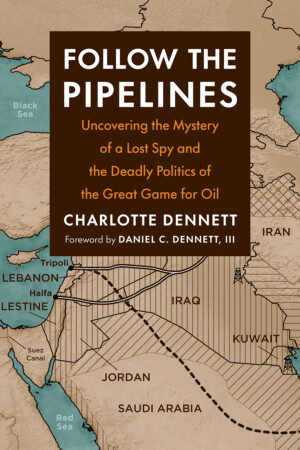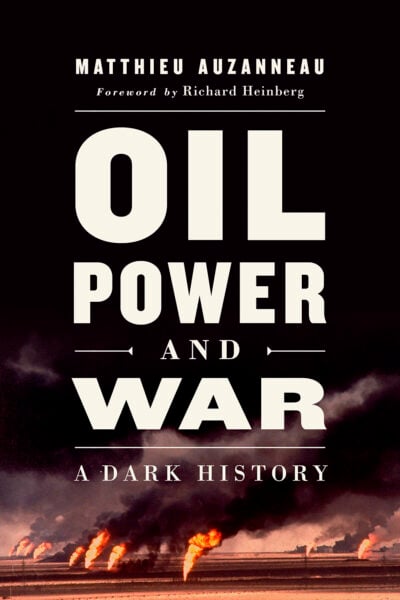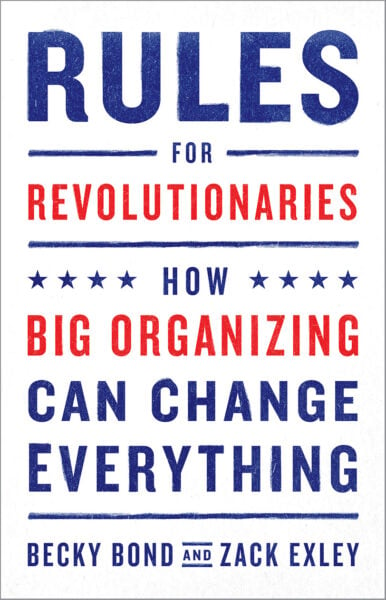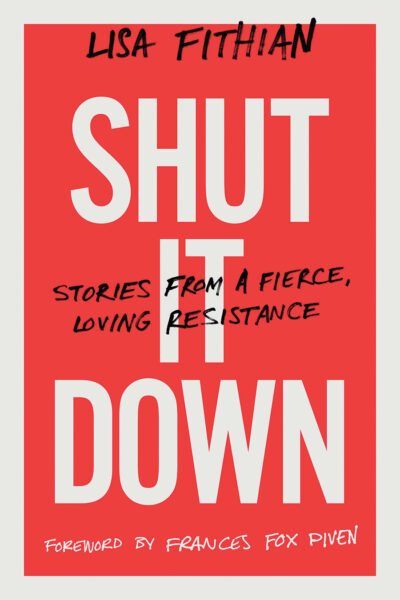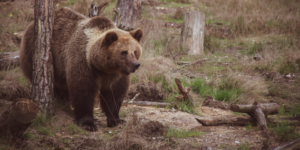The Deadly Politics of the Great Game for Oil
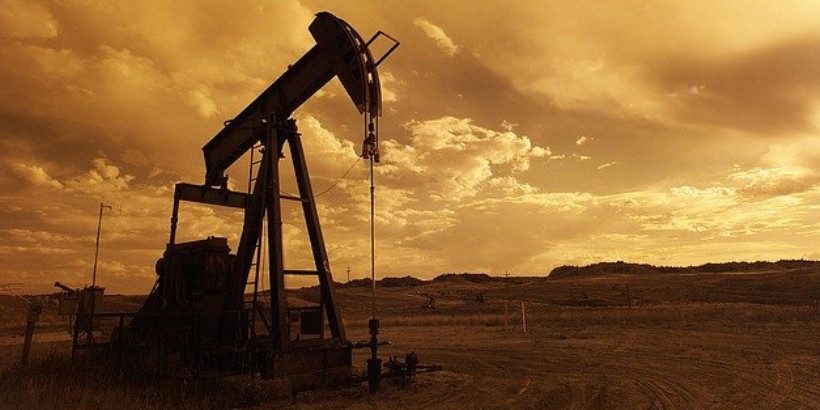
In 1947, Daniel Dennett, America’s sole master spy in the Middle East (code name “Carat”), was dispatched to Saudi Arabia to study the route of the proposed Trans-Arabian Pipeline. The plane carrying him to Ethiopia went down, killing everyone on board. In Follow the Pipelines, investigative journalist Charlotte Dennett, digs into the mystery of her father’s death, uncovering a covert struggle among superpower intelligence networks, military, and Big Oil that has shaped the Middle East.
In the following excerpt, Dennett contends with the shifting sands of post-World War II alliances as a new battle over competing sources of energy flared up around Carat and his counterintelligence work.
From the Chelsea Green 2020 Spring Journal. It has been adapted for the web.
Prefer Audio?
Listen to the following excerpt from the audiobook of Follow the Pipelines.
My parents’ letters home in 1946 and early 1947 clearly indicated that [my father] saw Soviet Russia as the United States’ biggest enemy in the postwar Middle East. But as declassified Office of Strategic Services (OSS) documents at the National Archives would soon reveal, Great Britain and France (both resentful over America’s displacement of their colonial influence in the Middle East) were not above suspicion. And lying at the heart of intensifying postwar rivalries among former allies was the Trans-Arabian Pipeline.
The very survival of Western capitalism seemed to depend on the success of this pipeline, forcing my father, as the top diplomat-spy in the Middle East, to become an expert in the intrigues of what I call the Great Game for Oil.
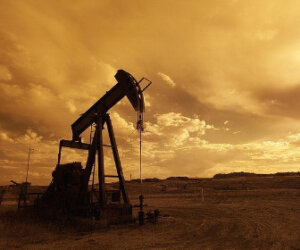 When the OSS sent Daniel Dennett to Beirut, Lebanon, in the spring of 1944, his mission was to engage in counterintelligence work. That meant protecting American and Allied intelligence operations against infiltration by the Germans. But when he arrived, he discovered that all German agents had been “cleaned up.”
When the OSS sent Daniel Dennett to Beirut, Lebanon, in the spring of 1944, his mission was to engage in counterintelligence work. That meant protecting American and Allied intelligence operations against infiltration by the Germans. But when he arrived, he discovered that all German agents had been “cleaned up.”
Instead, he soon found himself in the middle of a covert battle for cultural, political, and economic influence in the Middle East, pitting him against America’s wartime allies—the British, the French, and the Russians.
The State Department had warned him that he would find a veritable “free-for-all” among the allies as the war began to wind down, but he was still shocked (Anglophile that he was) to discover that the British were the biggest danger among the three allies when he first arrived.
In his first report to his OSS superior, Turner McBaine, on May 12, 1944, Dennett described how, while “living his cover” as the cultural attaché, he learned that the British were fully engaged in cultural warfare against the Americans in their efforts to penetrate the American University of Beirut and the Aleppo College of Syria with British teachers and propaganda. . . . Whether Dennett knew it or not, McBaine also served as chief counsel to Standard Oil of California (Socal, later Chevron), one of the main partners in Aramco, which held the exclusive oil concession in Saudi Arabia.
From the time of its announcement to the press in February 1944, the Trans-Arabian Pipeline loomed large in the consciousness of every Arab leader and every foreign diplomat and spy stationed in Lebanon, Syria, and Saudi Arabia. Its construction, completed in 1950, would change the balance of power in the whole Middle East and, for that matter, the whole world. It would help firmly establish the United States as a global superpower.
During a brief visit to Washington, DC, following the death of Franklin D. Roosevelt in 1945, my father revealed to a family friend that his life was in danger. As he boarded a plane for Beirut, he turned to his friend and soberly commented, “I may not come home alive. Please look after my wife and children in case that happens.”
It is that three-way nexus (of intelligence, military power, and Big Oil) that my father was beginning to catalyze, wittingly or not. That dictum still guides US foreign policy in the Middle East, except the stakes are even larger now. With equally huge oil and gas fields being discovered in Yemen, the Persian Gulf, the Levantine Basin, Egypt, and possibly the Golan Heights, the US militarization of the Eastern Mediterranean and the Gulf has reached unprecedented levels.
Recommended Reads
A Life-Changing Discovery: Introduction to Pipeline Politics
Recent Articles
Addressing the pressing issues affecting everyday Americans is essential—and one of our nation’s most profound challenges is the devastating impact of mass layoffs. Layoffs upend people’s lives, cause enormous stress, and lead to debilitating personal debt. The societal harm caused by mass layoffs has been known for decades. Yet, we do little to stop them.…
Read MoreWhat does facing the beast mean? In this time of uncertainty, we must practice regular reflection to achieve optimal happiness and health. The metaphor below gives insight into confronting and facing it, regardless of what “the beast” is to you. The following is. an excerpt from Facing the Beast by Naomi Wolf. It has been adapted for the…
Read MoreWe’ve all heard of the phrases “time flies” and “time heals all wounds,” but what really is time, and how does it impact our lives? The concept of time may be even more powerful than we think, especially when it comes to the money we save and spend. The following is an excerpt from The…
Read More“Climate change asks us questions that climate science cannot answer,” — Dougald Hine When it comes to climate change, it seems as if there are always new questions arising: How did we get to this point? How can we stop it? What’s next? Unfortunately, there is no black-and-white, straightforward answer to any of them —…
Read MoreDougald Hine has spent most of his life talking to people about climate change. And then one afternoon in the second year of the pandemic, he found he had nothing left to say. Why would someone who cares so deeply about ecological destruction want to stop talking about climate change now? In the excerpt below, Hine…
Read More

